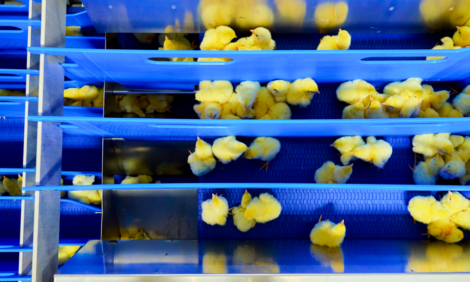



Managing Manure from the Backyard Flock
Advice from Mississippi State University on manure management for small poultry flock-owners.In recent years, increasing numbers of urban and rural landowners across the country have been 'flocking' to raise backyard poultry. Backyard poultry enthusiasts have discovered the opportunity to be more self-sufficient and live in a more sustainable manner by producing their own eggs and meat right at home.
However, many of these new small flock-owners are left searching for answers to questions because of a lack of current information to meet their needs and a shortage of knowledgeable experts.
One question small flock-owners have, especially urban owners, is what to do with the manure the chickens produce.
Poultry waste can be either a plus or a minus, depending on how you approach it. If allowed to accumulate without proper storage or processing, it can certainly be a problem and become an odour and fly nuisance. However, if properly processed (or composted), it is an excellent soil amendment and fertiliser.
The key is to understand and follow the steps necessary to produce quality compost from poultry waste, say Tom Tabler (Extension Professor, Poultry Science), F. Dustan Clark (Extension Poultry Health Veterinarian, University of Arkansas Cooperative Extension Service), Jonathan R. Moyle (Extension Poultry Specialist, University of Maryland Extension), Morgan Farnell (Associate Professor, Poultry Science) and Jessica Wells (Extension Instructor, Poultry Science).


What to Do?
Something that backyard flock owners discover is that much of what goes in one end of their birds comes out the other. Although the number of birds is often small, backyard birds produce a considerable amount of manure that must be properly managed.
A typical layer will produce 0.19 pounds of manure per day (ASAE, 2005). That amounts to just over 69 pounds of manure per year. When you have 10 laying hens, that is almost 700 pounds of manure to manage per year.
Composting is the best way for small flock owners to manage this manure.
The traditional and most common method of composting is accomplished by creating a large pile of litter, maintaining the proper moisture content, and turning the pile on a regular basis for several weeks until the process is complete.
In this case, litter can be poultry manure, bedding material, kitchen scraps, dry leaves, grass clippings and so forth.
The process takes time and effort but yields a high-quality, natural, slow-area. Composting is a common and accepted practice in many areas to dispose of yard and kitchen waste.
Composting is a process in which aerobic (oxygen-consuming) bacteria and fungi feed on organic waste in a properly managed pile, which converts the waste to compost. Like almost anything else, there are proper steps and procedures to follow for composting poultry manure to maintain sanitary conditions - not to mention staying on good terms with your neighbours.
Where to Find Help
Many small backyard poultry flock owners may not know how to find answers to questions they have concerning their flock. This is not surprising when you consider that in 1950, there were poultry science departments at more than 40 state colleges and universities; today only six poultry science departments remain (Jacob, 2013). These six remaining poultry science departments are located in states that have strong commercial poultry industry presences, including Auburn University, Mississippi State University, North Carolina State University, Texas A&M University, the University of Arkansas, and the University of Georgia. These universities have multiple Extension poultry experts.
Questions from backyard enthusiasts can be varied and may include topics like manure management, protection from predators, what to feed the birds, light management to keep hens laying through the winter, what breeds work best for their particular situation, pen construction, providing shelter, keeping urban poultry and so forth.
The local county Extension office is always a good first place to start. No one is an expert in everything, and your local county Extension agent may not be trained in poultry. However, he or she should have access to a poultry expert at the university level. Land-grant universities often have Extension personnel on campus with poultry expertise regardless of whether the state has a large commercial poultry industry. Smaller schools may also have personnel with poultry backgrounds that can be a valuable resource.
In addition, the web site, www.extension.org/poultry has information on a variety of topics related to small and backyard flocks, as well as an 'Ask an Expert' feature that is available to anyone at any time.
Summary
Managing poultry waste from the backyard flock can be challenging if you do not know what to do.
Many newcomers to the world of backyard poultry may need assistance with manure management but may not know where to turn for help. However, help is available from your local county Extension office, Extension poultry specialists at land-grant universities and professionals with poultry expertise at smaller colleges and universities.
References
ASAE (American Society of Agricultural Engineers). 2005. Manure production and characteristics. Accessed 11 November 2013.
Jacob, J. 2013. Small and backyard flocks animal manure management. Accessed 11 November 2013.
April 2014









